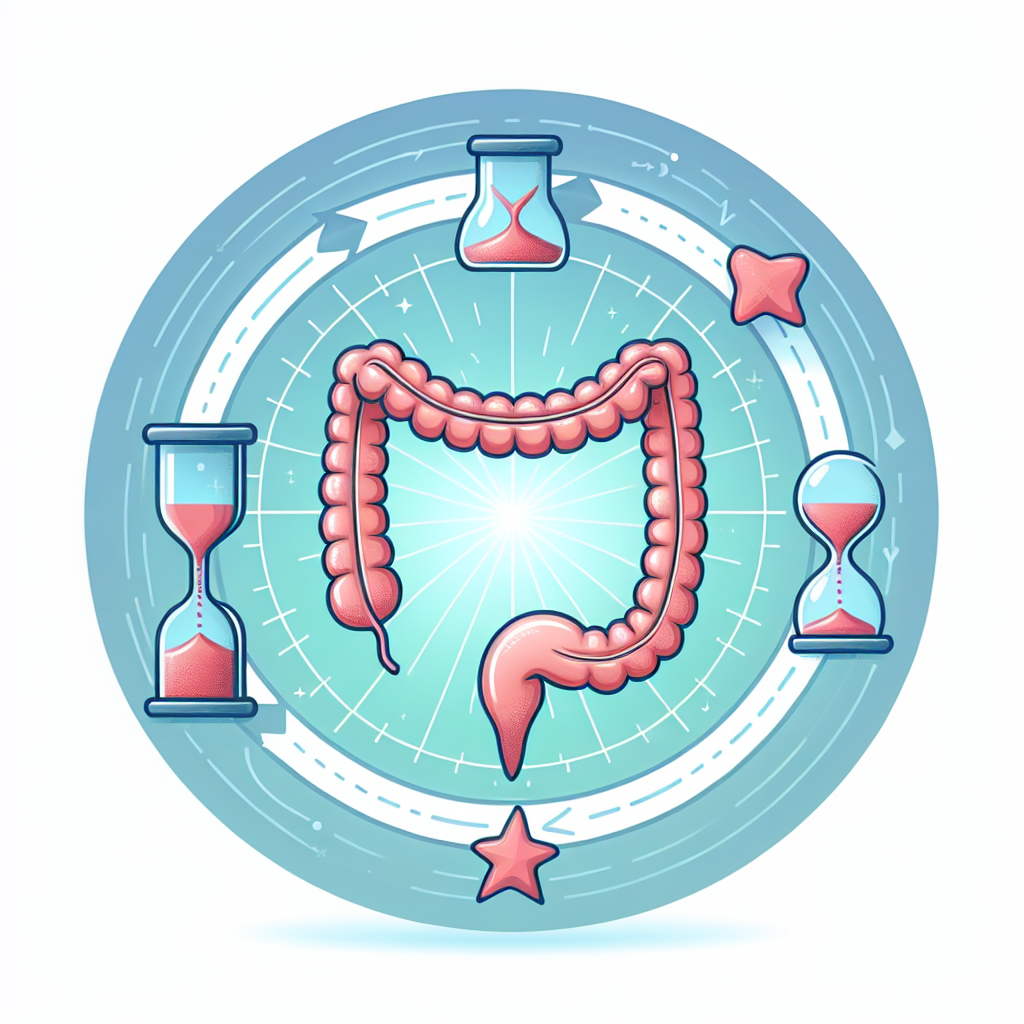The Impact of Gut Health on Longevity

Discover more about the impact of gut health on longevity. Learn how a healthy gut can contribute to a longer, healthier life. Visit My Vibrant Vitality now.
Exploring the Connection between Gut Health and Longevity
The human body is a complex system, and one of its most intriguing aspects is the gut, also known as the digestive system. Recent scientific research has begun to unravel the profound impact of gut health on overall well-being and longevity. The gut, home to trillions of microorganisms, plays a pivotal role in maintaining our health. These microorganisms, collectively known as the gut microbiota, are instrumental in digestion, nutrient absorption, and immune function. However, their influence extends beyond these basic functions, with emerging evidence suggesting a significant link between gut health and longevity.
The gut microbiota is a dynamic entity, constantly changing in response to diet, lifestyle, and environmental factors. A balanced gut microbiota, characterized by a diverse range of beneficial bacteria, is associated with good health. Conversely, an imbalance, known as dysbiosis, can lead to various health issues, including obesity, diabetes, and heart disease. These conditions not only affect quality of life but also have a direct impact on lifespan. Therefore, maintaining a healthy gut microbiota is crucial for promoting longevity.
The connection between gut health and longevity can be traced back to the concept of ‘inflammaging’. This term refers to chronic low-grade inflammation that occurs with age, contributing to the development of age-related diseases. The gut microbiota plays a significant role in regulating inflammation. A healthy gut microbiota can keep inflammaging in check, thereby reducing the risk of age-related diseases and promoting longevity. On the other hand, dysbiosis can exacerbate inflammaging, leading to a higher risk of disease and a shorter lifespan.
Moreover, the gut microbiota is also involved in the process of aging itself. Research has shown that the composition of the gut microbiota changes with age. These changes can influence the aging process, with certain bacterial species associated with longevity. For instance, studies have found higher levels of beneficial bacteria, such as Akkermansia and Bifidobacterium, in centenarians. These bacteria are known for their anti-inflammatory properties and their ability to strengthen the gut barrier, which can help to promote healthy aging.
The gut-brain axis, a bidirectional communication system between the gut and the brain, further underscores the importance of gut health for longevity. The gut microbiota can influence brain function and behavior through this axis, affecting mood, stress response, and cognitive function. Poor gut health can disrupt this communication, leading to mental health issues like depression and anxiety, which can negatively impact lifespan. Conversely, a healthy gut can support optimal brain function, contributing to mental well-being and potentially extending lifespan.
In conclusion, the impact of gut health on longevity is multifaceted, encompassing inflammation regulation, aging processes, and brain function. While more research is needed to fully understand this complex relationship, it is clear that maintaining a healthy gut is crucial for promoting longevity. This can be achieved through a balanced diet rich in fiber and fermented foods, regular exercise, adequate sleep, and stress management. By taking care of our gut health, we can not only enhance our quality of life but also potentially add years to our lifespan.
The Role of Gut Microbiome in Promoting a Longer Life

The impact of gut health on longevity is a topic that has been gaining significant attention in the scientific community. The gut microbiome, the collection of trillions of microbes living in our digestive tract, plays a crucial role in our overall health. It aids in digestion, boosts our immune system, and even influences our mood. Recent research suggests that the gut microbiome may also play a pivotal role in promoting a longer life.
The gut microbiome is a complex ecosystem that is influenced by various factors such as diet, lifestyle, and genetics. It is composed of a diverse array of bacteria, viruses, fungi, and other microorganisms. These microbes interact with each other and with our bodies in ways that can either promote health or contribute to disease.
One of the ways the gut microbiome may influence longevity is through its impact on inflammation. Chronic inflammation is a key driver of many age-related diseases, including heart disease, cancer, and Alzheimer’s. The gut microbiome can influence inflammation in the body through its interactions with the immune system. Certain types of bacteria in the gut can trigger inflammatory responses, while others can suppress them. By maintaining a healthy balance of these microbes, it may be possible to reduce inflammation and potentially slow the aging process.
Another way the gut microbiome may promote longevity is through its role in metabolism. The microbes in our gut help to break down the food we eat, extracting nutrients and producing beneficial compounds. Some of these compounds, such as short-chain fatty acids, have been shown to have anti-aging effects. They can improve insulin sensitivity, reduce oxidative stress, and promote the health of the cardiovascular system.
The gut microbiome also plays a role in maintaining the integrity of the gut barrier. This barrier prevents harmful substances from leaking out of the gut and into the bloodstream, a phenomenon known as “leaky gut”. When the gut barrier is compromised, it can lead to chronic inflammation and a host of health problems. A healthy gut microbiome can help to maintain the integrity of the gut barrier, potentially reducing the risk of age-related diseases.
The gut-brain axis, the bidirectional communication between the gut and the brain, is another area where the gut microbiome may influence longevity. Research has shown that the gut microbiome can affect brain health and function, influencing mood, cognition, and even the risk of neurodegenerative diseases. By promoting a healthy gut microbiome, it may be possible to support brain health and potentially extend lifespan.
While the research on the gut microbiome and longevity is still in its early stages, the findings so far are promising. They suggest that by taking care of our gut health, we may be able to influence our longevity. This could involve dietary changes, such as eating a diverse diet rich in fiber and fermented foods, as well as lifestyle changes like regular exercise and adequate sleep.
In conclusion, the gut microbiome plays a crucial role in our health and may be a key player in promoting a longer life. By understanding and nurturing our gut microbiome, we may be able to unlock new strategies for promoting health and longevity. As research in this area continues to evolve, it will be exciting to see what new insights and interventions emerge.
How Gut Health Influences Aging and Longevity
The human body is a complex system, and every part plays a crucial role in maintaining overall health. One such part that has been gaining significant attention in recent years is the gut. The gut, or the gastrointestinal tract, is not just responsible for digestion and absorption of nutrients, but it also plays a pivotal role in our immune system, mental health, and overall well-being. Recent research has suggested that gut health may also have a profound impact on aging and longevity.
The gut is home to trillions of microorganisms, collectively known as the gut microbiota. These microorganisms, which include bacteria, viruses, and fungi, have a symbiotic relationship with the human body. They help in breaking down food, producing essential vitamins, and protecting against harmful pathogens. However, the composition and diversity of these microorganisms can significantly influence our health and lifespan.
A balanced gut microbiota is characterized by a diverse range of beneficial bacteria. This diversity is crucial for maintaining gut health and, by extension, overall health. A diverse gut microbiota is associated with a robust immune system, efficient nutrient absorption, and reduced risk of chronic diseases. On the other hand, an imbalance in the gut microbiota, known as dysbiosis, can lead to various health issues, including obesity, diabetes, heart disease, and even certain types of cancer. These conditions not only affect the quality of life but can also shorten lifespan.
The link between gut health and aging is further supported by studies on centenarians, people who live to be 100 years or older. These individuals often have a diverse gut microbiota, similar to much younger individuals. This suggests that maintaining a healthy gut could be a key to achieving a long and healthy life.
So, how can we promote gut health and potentially enhance longevity? The answer lies in our lifestyle choices, particularly our diet. A diet rich in fiber, fruits, vegetables, and fermented foods can promote a diverse gut microbiota. These foods are high in dietary fiber and other nutrients that serve as food for beneficial bacteria, helping them thrive. On the other hand, a diet high in processed foods, sugar, and unhealthy fats can lead to dysbiosis and associated health problems.
Physical activity is another important factor. Regular exercise can enhance gut diversity and promote the growth of beneficial bacteria. Additionally, managing stress, getting enough sleep, and avoiding harmful habits like smoking and excessive alcohol consumption can also contribute to a healthy gut.
In conclusion, gut health plays a significant role in aging and longevity. A balanced and diverse gut microbiota can help maintain overall health, prevent chronic diseases, and potentially extend lifespan. Therefore, adopting a healthy lifestyle that promotes gut health could be a valuable strategy for achieving a long and healthy life. However, it’s important to remember that while the link between gut health and longevity is promising, more research is needed to fully understand this complex relationship. As we continue to unravel the mysteries of the gut, it’s clear that this tiny ecosystem within us holds enormous potential for enhancing our health and longevity.